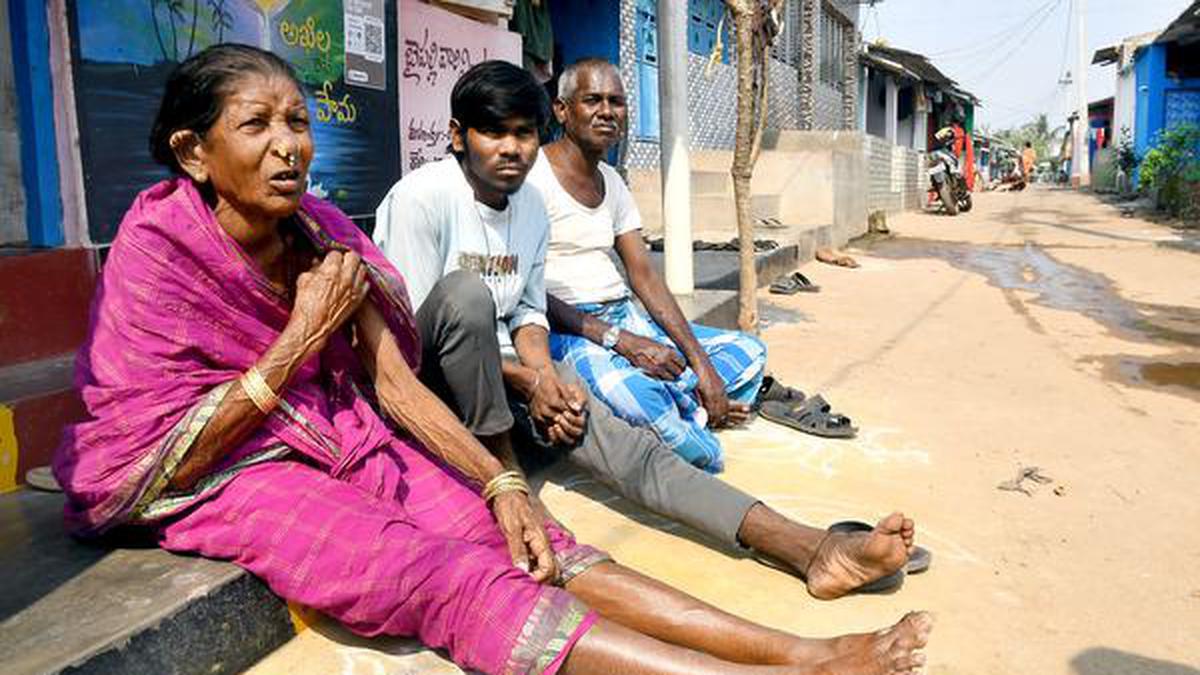
A silent epidemic in Uddanam Premium
The Hindu
Uddanam CKD hotspot: 40-year-old B. Bhuwansai and others battle the disease with help from Andhra Pradesh govt. initiatives.
Until two years ago, 40-year-old construction supervisor B. Bhuwansai lived a content life. Amid the simplicity of his modest two-room home in Erragonduputtuga village of Kaviti mandal in Srikakulam district, Andhra Pradesh, he found joy in the company of his small family — his wife Saraswati, 34; and their children, Akhil, 8, and Ankitha, 6. The four frequently explored tourist spots, seizing every opportunity to enrich their lives with new experiences.
However, their lives were upended when Bhuwansai suddenly fell sick. Two years ago, he started experiencing joint pains and a noticeable lack of energy even for minor tasks. The physical discomfort prompted him to seek medical help. That was when he was diagnosed with chronic kidney disease (CKD). Now he undergoes dialysis at Kaviti government hospital thrice a week, leaving him with only four days a week to earn a living. Despite his efforts to continue working on the remaining days, his body refuses to cooperate.
His wife, Saraswati, finds herself unable to seek employment for the family’s sustenance as she looks after Bhuwansai both in hospital and at home. The situation is further complicated by the challenge of finding suitable donors for kidney transplantation.
Janni Niranjanam, a 40-year-old car driver, is among scores of patients who undergo dialysis, a crucial requirement for patients in advanced stages of CKD, at Kaviti Hospital. He and his wife Kumari travel to the hospital from Belliputtuga village in the mandal thrice a week for this. As does Bhogiya Madhav, who is in his mid-30s and was diagnosed with CKD two years ago.
The common thread binding the three is their location — Uddanam region of Srikakulam district. Extensive use of chemicals and fertilizers for cultivating coconut crops over the past few decades has led to soil contamination in approximately 700 villages of the region, covering seven mandals — Ichchapuram, Sompeta, Kanchili, Kaviti, Mandasa, Palasa, and Vajrapukotturu. Groundwater contamination is believed to be the primary cause of the disease among residents, says former Director of Medical Education Ravi Raju who has done considerable research on the issue as an urologist. Unofficial estimates suggest that around 15,000 people in Uddanam region have died due to CKD in the past 20 years.
The Indian Council of Medical Research (ICMR), which has an agreement with the Andhra Pradesh government, is set to commence operations at the newly constructed Palasa Research Center, officially known as YSR Super Specialty Hospital and Kidney Research Centre at Palasa, to determine the exact reasons behind the disease.
Heart-wrenching stories abound in the Uddanam region, a CKD hotspot. In the village of Idduavanipalem in Kaviti mandal, there is at least one person living with CKD in every household.













